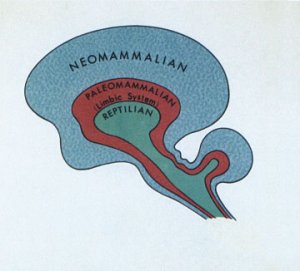The ‘hopes
and fears of all the years are met…’ every time we have extended family visits!
As much as
we love and value our closest family, there’s just nothing like holiday
gatherings to set us off, light our fuses, show us where we’re stuck, make us
crazy—and to remind us in wonderfully obvious ways just how wired we still are
to old family patterns.
The
following is copied from Rick Hanson’s book, The Buddha’s Brain: The Practical Neuroscience of Happiness, Love, and
Wisdom. It’s a great holiday read!
It may or
may not make us feel better, but it’s almost
guaranteed to make us chuckle at the ironies of our lives—and perhaps even to
smile at the possibility of learning how to say grace over and within the wacky minefields
of the season.
Taking five
minutes to read this might at least make it easier for you to appreciate why you
feel the way you do.
---
Suffering is
not abstract or conceptual. It’s embodied: you feel it in your body, and it
proceeds through bodily mechanisms. Understanding the physical machinery of
suffering will help you see it increasingly as an impersonal
condition—unpleasant to be sure, but not worth getting upset about, which would
just bring more second darts.
Suffering
cascades through your body via the sympathetic nervous system (SNS) and the
hypothalamic-pituitary-adrenal axis (HPAA) of the endocrine (hormonal) system.
Let’s unscramble this alphabet soup to see how it all works. While the SNS and
HPAA are anatomically distinct, they are so intertwined that they’re best
described together, as an integrated system. And we’ll focus on reactions
dominated by an aversion to sticks (e.g., fear, anger) rather than a grasping
for carrots, since aversive reactions usually have a bigger impact due to the
negativity bias of the brain.
Something
happens. It might be a car suddenly cutting you off, a put-down from a
coworker, or even just a worrisome thought. (It might be conversation around the family table*! [MH])
Social and emotional conditions can
pack a wallop like physical ones sincepsychological pain draws on many of the
same neural networks as physical pain (Eisenberger and Lieberman 2004); this is
why getting rejected can feel as bad as a root canal. Even just anticipating a
challenging event—such as giving a talk next week—can have as much impact as
living through it for real. Whatever the source of the threat, the amygdala
sounds the alarm, setting off several reactions:
- The
thalamus—the relay station in the middle of your head—sends a “Wake up!” signal
to your brain stem, which in turn releases stimulating norepinephrine
throughout your brain.
- The SNS
sends signals to the major organs and muscle groups in your body, readying them
for fighting or fleeing.
- The
hypothalamus—the brain’s primary regulator of the endocrine system—prompts the
pituitary gland to signal the adrenal glands to release the “stress
hormones”epinephrine (adrenaline) and cortisol.
Within a
second or two of the initial alarm, your brain is on red alert, your SNS is lit
up like a Christmas tree, and stress hormones are washing through your blood.
In other words, you’re at least a little upset. What’s going on in your body?
Epinephrine
increases your heart rate (so your heart can move more blood) and dilates your
pupils (so your eyes gather more light). Norepinephrine shunts blood to large
muscle groups. Meanwhile, the bronchioles of your lungs dilate for increased
gas exchange—enabling you to hit harder or run faster.
Cortisol
suppresses the immune system to reduce inflammation from wounds. It also revs
up stress reactions in two circular ways: First, it causes the brain stem to
stimulate the amygdala further, which increases amygdala activation of the
SNS/HPAA system—which produces more cortisol. Second, cortisol suppresses
hippocampal activity (which normally inhibits the amygdala); this takes the
brakes off the amygdala, leading to yet more cortisol.
Reproduction
is sidelined—no time for sex when you’re running for cover. The same for
digestion: decreases and peristalsis slows down, so your mouth feels dry and
you become constipated.
Your
emotions intensify, organizing and mobilizing the whole brain for action.
SNS/HPAA arousal stimulates the amygdala, which is hardwired to focus on
negative information and react intensely to it. Consequently, feeling stressed
sets you up for fear and anger.
As limbic
and endocrine activation increases, the relative strength of executive control
from the PFC declines. It’s like being in a car with a runaway accelerator: the
driver has less control over her vehicle. Further, the PFC is also affected by
SNS/HPAA arousal, which pushes appraisals, attributions of others’ intentions,
and priorities in a negative direction: now the driver of the careening car
thinks everybody else is an idiot. For example, consider the difference between
your take on a situation when you’re upset and your thoughts about it later
when you’re calmer.
In the harsh
physical and social environments in which we evolved, this activation of
multiple bodily systems helped our ancestors survive. But what’s the cost of
this today, with the chronic low-grade stresses of modern life?
---
Becoming
aware of all this stuff that goes on in us can make us a little crazy. But not
nearly as crazy as not becoming aware of it. Happy Holidays.



